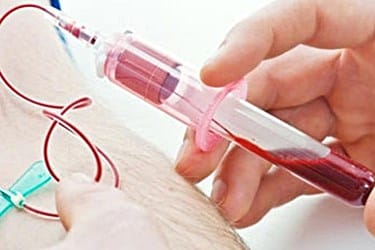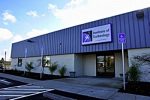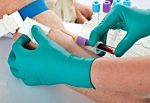A career in phlebotomy can be a very rewarding one. Not only can you help people in need, but there is an ever-growing need for phlebotomists. To get into the best jobs, however, you need the best training you can get.
When searching for schools, many say that you can graduate fast and that they have the best training available. But how can you be sure? There are also brick and mortar schools that offer training classes in Utah, but it can be tough to find the best choice for you.
Phlebotomy classes in Utah are best taken in person instead of online. These types of courses are more of a hands-on learning experience, which an online class just can’t give you. There are very good training schools in Utah, and we have listed a few of them below.
Many things have to be taken into consideration when taking a training course, including what all is included in the course if they offer job placement assistance, and how much a course will cost, just to name a few.
In this article, we will list some of the top schools in Utah that offer the best classes and courses in phlebotomy. We will tell you all that they have to offer you so that you can make an informed decision.
Where to Find Phlebotomy Training Courses in Utah
Some schools or training centers for phlebotomy offer only the main course. Then it is up to you to go out and find an internship on your own. Some others assist you in finding an internship, where you can work along with an experienced phlebotomist. This is essential when finding a job.
Different states have different legal requirements.Utah does not require that you are certified to be a phlebotomist, but almost no one will hire you if you’re not certified. If you have taken courses and are already certified in another state, your certification will carry over so that you can find a job in Utah.
To make it easier for yourself, you should take a CPR class and a Basic Life Saving class before registering. Some training classes do offer this as part of their program, but not all of them.
Some courses also offer job placement assistance, while others do not. The more that you look into the choices of phlebotomy training in Utah, the easier that you will be able to find the school that will fit your needs, as well as your budget.
Below we have listed a few of the best courses that are available in Utah.
Intermountain Healthcare
Intermountain Healthcare offers phlebotomy courses several times a year. The course lasts for four weeks. To enroll, you have to have a high school diploma or a GED, a CPR or Basic Life Saving Skills certificate, and at least one year of experience in customer service.
Out of the four weeks, the first two weeks you are in a classroom, and the last two weeks you will have an externship at one of their chosen hospitals.
Students taking this course are considered full-time employees and will work 40 hours a week. The working hours are from 4 am to 5:30 pm.
The classes are held at the Employee Services Center in Murray, UT, but you will also have to go to training sessions at various hospitals around the area.
After you have completed the training course, you will be able to apply for a job in the placement interviews that are provided at the end of the course.
When you have finished taking the course, you will work about 2000 hours in Salt Lake Valley. You may work full time for 1 year or 2 years on a part-time basis. (This is in the contract of the course). You may be able to work for hospitals, clinics, and doctors’ offices in the area, as long as they are associated.
If for some reason, you don’t fulfill the contract, you will have to pay back $1500, for the tuition and training.
Essentially, if you were to choose to take a course at Intermountain Healthcare, you will not only be getting the training that you need, but you will also be working for them at the same time. This is a very good way to start your career.

Phlebotomy Training Specialists in Utah
PTS offers students a 12-hour class and a 32-hour training program that is nationally accredited. This 32-hour program has an optional 40-hour externship, which will give you the hands-on experience that is in demand by employers.
No matter which course you choose, you will get CPR training and certification. These are both given through the American Heart Association.
PTS has classes in Murray, Orem, Clearfield, and St. George, Utah. They also offer daytime and evening classes, as well as weekend classes.
The classes at Phlebotomy Training Specialists are hands-on. You are trained in drug testing, medical procedures, and lab processing. They also tell you places that are hiring and will teach you how to apply, and get accepted, for those jobs.
National Phlebotomy Certification – $495.00 + $100.00 to take the National Exam
Standard Phlebotomy Certification – $195.00 all inclusive
The unique advantage that this school offers is that if you don’t pass the first time, they will continue teaching you (at no additional cost to you) until you can pass, and are ready to take on a job as a phlebotomist.
Bridgerland Applied Technology College
To gain the skills and knowledge to be a phlebotomist, you have to have not only class instruction, but also hands-on training. You will learn basic anatomy, learn how to take blood properly, as well as prep the samples for the lab.
Another thing that is required for all students is to perform venipuncture every week.
When you complete the course, to get a national certification, you will take a national health career association certified phlebotomy technician exam.
This college is located in Brigham City, Utah. It is a 10-week course, and the tuition is $476, plus $50 for a background check.
Utah CNA Training Centers
Located in Salt Lake City, this 40-hour program will prepare you for an entry-level position. It also helps nurses and other medical personnel to advance their careers.
It is a 5-week program that is held two nights a week. It is 40 hours, which include both classroom and lab hours.
To enroll, you must be at least 18 years of age and have a high school diploma or equivalent. There is also a pre-admission assessment to get accepted into the program.

The tuition for this course is $295, which includes the classroom training, lectures, handouts, and supplies.
You will be taught not only how to take blood, but also how to prepare the samples for lab testing. You will also learn the basics, of course, plus different techniques that are used to correctly and safely handle, store, test, and transport the blood taken.
This course will give you a certificate in phlebotomy training. If you want national testing, it will cost an additional $105. If you have a national certificate, you will be able to get a job in different states.
Oquirrh Mountain Phlebotomy School
This is another school that is an American Heart Association authorized training center. There are two different courses available.
The first is a National phlebotomy course. This course includes a 3-day training course for blood drawing, along with different reading assignments.
Following, there is an optional 30-hour0 hour volunteer program with local hospitals, clinics, and donation centers. This volunteer work will help you when applying for jobs, as employers want to know that you have experience.
The total time of the course is 50 hours. It costs $399, plus a $35 national exam fee.
When you are looking for schools that offer phlebotomy training courses in Utah, the best ones will be those that offer a national certificate. This certificate is recognized across the US, making it much easier for you to find a job if you ever decide to move to another state.
There are different phlebotomy courses that you can take. The prices vary, and you have to pay the tuition upfront. The more hands-on training that the school offers, the better.
After you have your certification, if it is not already required by the school, you should volunteer where you can to get more experience. The more you have, of course, the better your chances of getting hired will be.






